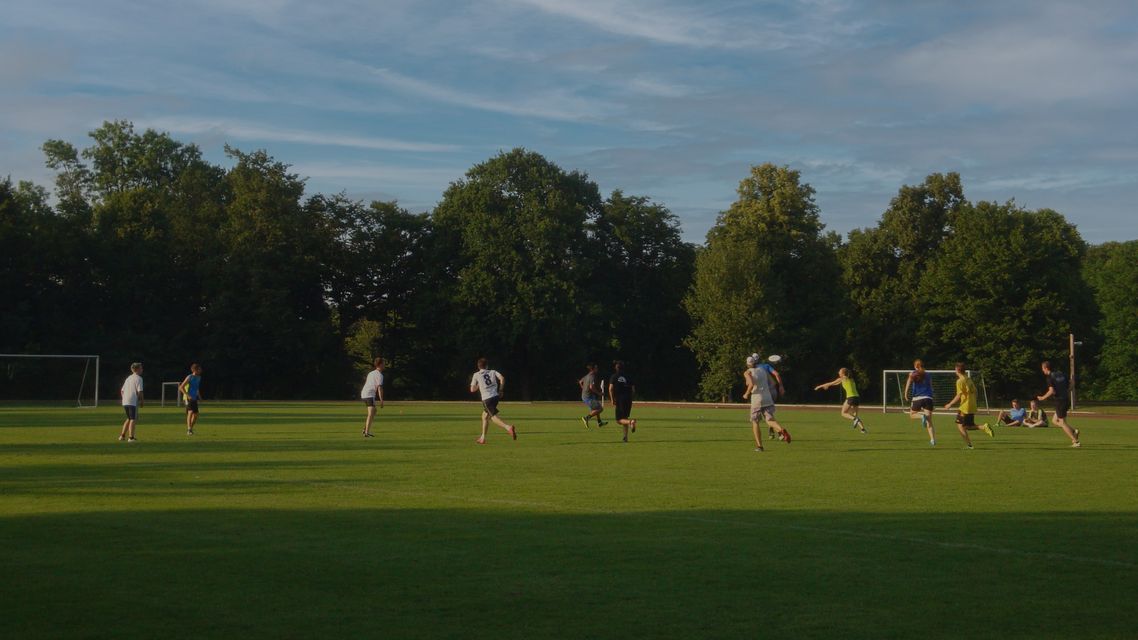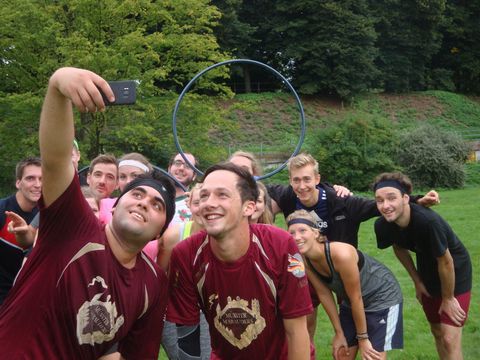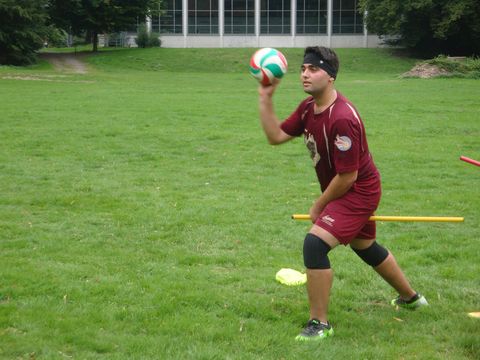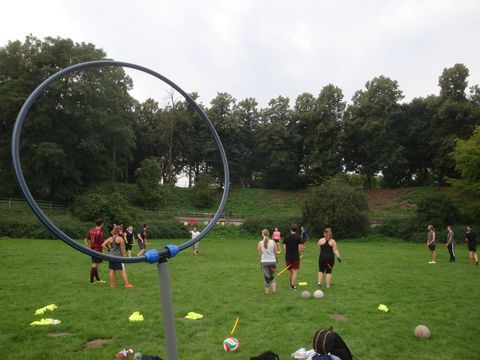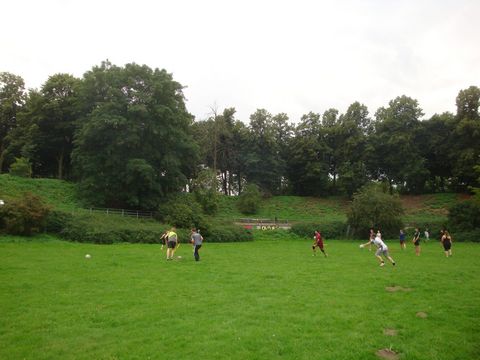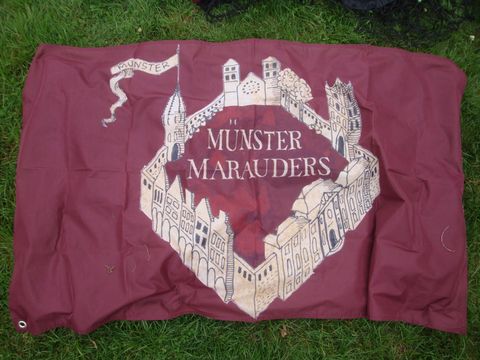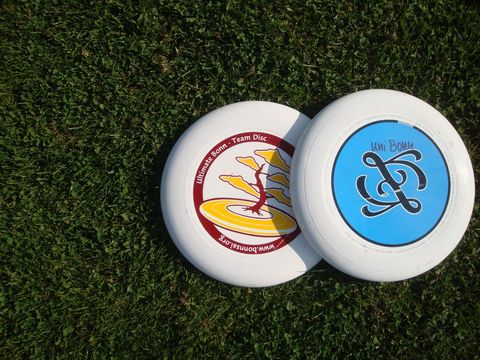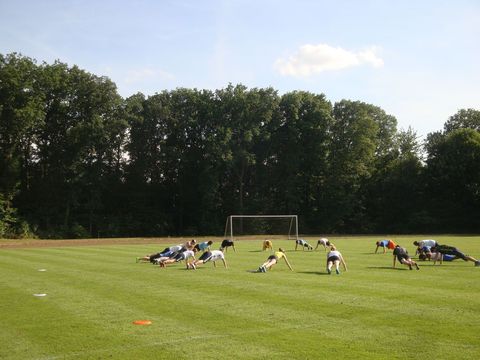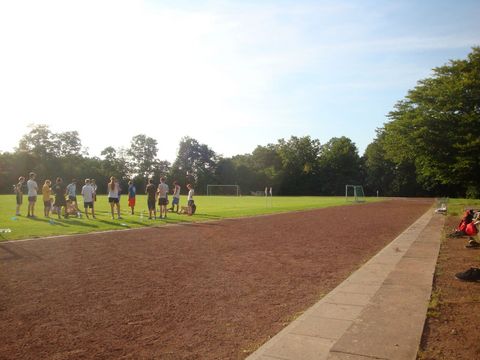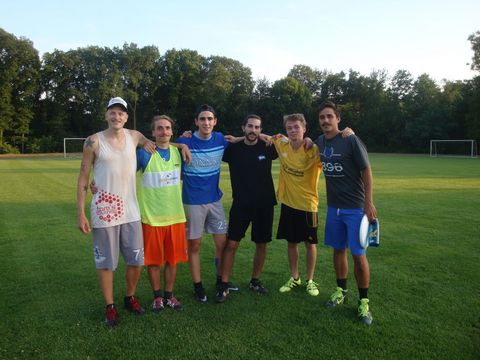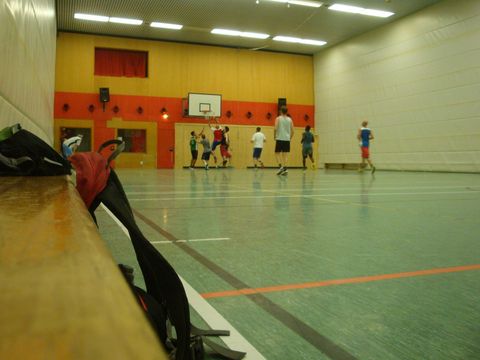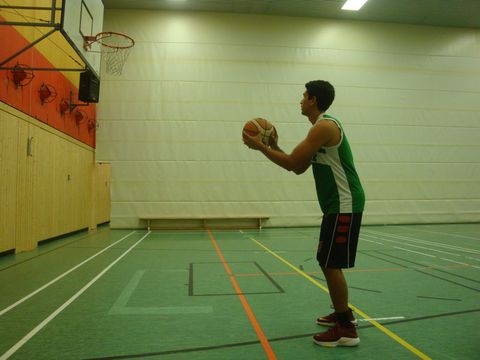Keep your head clear by staying active
Most students in Germany spend many hours at their desks, in the library, or in the laboratory. But it is important to put the learning material aside every now and again, and get some exercise. There is plenty of sport offers at many German institutes of higher education. This includes sport courses or special sport facilities that are made available by the university.
University sport in Germany offers you the opportunity to have a change of pace from learning, to stay physically fit, and to meet new people. You can choose from a wide range. There are courses for well-known sport disciplines such as soccer, football, basketball and swimming, but also for games that are still not so common, like ultimate Frisbee, pole dancing or quidditch (see below).
Huge selection at low costs
University sport has other advantages, beside the many different offers. The costs are usually low. In some cases, you can take a weekly course for ten euros per semester, and you often don’t need anything more than sportswear and trainers.
The costs depend mainly on the courses you want to take and how much effort is required in terms of organization and equipment. That means you will likely have to pay more for a canoeing lesson than you would for a soccer lesson. For many programmes there are no costs at all. Another advantage of university sport is that most courses start fresh every semester. So you can always try a new sport if you want.
Also, university sport offers you a good opportunity to get to know other students who have the same sporting interests as you, and to improve your German at the same time. Most course participants are students or employees of the universities.
Corona and school sport programmes
Something different: quidditch
Joanne K. Rowling has created a whole magical universe in Harry Potter, and a spectacular sport to go with it. When you hear the word „quidditch“, you think of flying brooms, dogfights and magic from a fictional world. Only a few people think of a German championship or a group of students actually running across a real meadow.
But quidditch has existed as a real sport since 2005. It was founded by students in the United States. Since then, teams have been formed in many other countries as well. Most of them are organized by students and belong to a university. Friendliness and mutual respect are key to the game. For a few years now there have also been quidditch teams in Germany and even a national team that takes part in international tournaments.
The structure of the game is based as closely as possible on the original game from the Harry Potter novels. As in the books, men and women students play together in a team. So that the gender distribution is similar in all teams, a maximum of four people of the same gender are allowed to play. This means that if there are already four male players on a team on the field, the other three left on the team cannot be men too. The biggest difference to the book are the brooms, which are not flying brooms in the real world. As a substitute, the players carry a stick between their legs.
If you would like to try playing quidditch, the website of the German Quidditch Federation offers you a good overview of the teams that are active in Germany. Simply contact the team that you would like to play with. You do not need any previous knowledge or specific skills. (You don’t have to be able to do magic either!)
Tipp
Registering for a sport course
Two academic sport careers: Bruno and Marshall
Bruno Naredo from Chile is an international student who takes part in university sport. He is 20, and studies political science and English studies at the University of Bonn. He is currently taking a course in ultimate Frisbee, among other things. Two teams play against each other with a Frisbee flying disc instead of a ball.
Bruno explains how he got into the ultimate Frisbee: “I often saw the players play on a meadow in front of Bonn University and thought that I would like to do that too. Players were throwing the disc precisely to where it should go. I then just decided to start. I signed up and now I’m part of the team. A few weeks ago we went to Munich for the German University Championship. We played there and it was just so much fun and interesting.“
Bruno and his team meet weekly during the lecture period to train. After warming up, they practice various throwing techniques and moves. The coach gives the team instructions and advice, but the players often help each other too. Those who are more experienced give plenty of tips to the newcomers. This helps to improve skills, but also helps the whole team to get to know each other better.
Marshall Porras has also had positive experiences with university sport. He comes from Peru and is also 20. He studies biology at the University of Bonn and takes courses in basketball. Why did he choose basketball? “The courses fit in well with my schedule at the university”, he says. “I played basketball in Peru when I was younger and you could do that in school. But here it’s not that easy. Either we have lectures or are busy with research. Basketball was good because I had free time on my schedule when the courses were offered.”
As with the ultimate Frisbee, communication with teammates is very important in basketball. This can help you to improve your German! That was what Marshall found out, and why he has a tip for other international students: “If you are spoken to in English, do not respond in English, but in German! You just have to talk and the others won’t hold it against you if you make mistakes.“
Participating in sport can help you organize your everyday life and your studies in Germany, as Marshall knows. “In Germany there are various things that sometimes make it difficult to adapt”, he says. “One is the German language. The second is German society, and the third is German organization. The sport here at university helps you adapt better. You meet a lot of people and this expands your circle of friends. This will also help you learn German and certain words and phrases that are used mostly by young people. Sport also helps you get organised better. If you haven’t done all your assignments for university before doing your sport, then you won’t be able to do it in terms of time. I was able to improve these three things through basketball!”
Conclusion
In line with this topic
Discovering Germany
